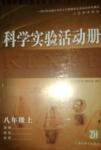题目内容
B
Dear Editor,
I’m a Senior 1 student in a middle school. This term, my favourite teacher, Miss Mao, no longer teaches us. I want to see her, but I’m afraid that she no longer likes me and I don’t want to trouble her. I really miss her. What should I do?
Tian Yan
Dear Tian Yan,
It’s bad luck that you have lost your favourite teacher. But, if she is still in your school, nothing can stop you going to see her. When she isn’t busy, ask her if she minds having a quick chat. You can then tell her she was your favourite teacher. Everyone is happy to know they are liked!
If she has left the school, it will be more difficult to meet her. It will be hard, but remember people always come and go in our lives. We can’t rely on(依靠) them being with us all the time.
You may be sad to say goodbye to her, but we can remember and learn from her. Think of her best qualities.
You could also try looking for similar qualities in your other teachers. Study hard and give your new teacher a chance. In time, you might start to see that he or she has different qualities to learn from.
Finally, you can not completely rely on other people getting you through your studies, or even your life.
Editor
35. Tian Yan ______.
A. is a troublemaker B. likes Miss Mao very much
C. is happy these days D. doesn’t like to tell her secret to anyone
36. Which of the following does the editor advise Tian Yan NOT to do?
A. Find a time to see Miss Mao. B. Have a short chat with Miss Mao.
C. Tell Miss Mao she likes her. D. Keep quiet about the thing.
37. The expression “in time” in this passage means “______”.
A. over a period of time B. on time C. at the right time D. a long time ago
38. According to the passage, students can make progress in their studies ______.
A. completely by their favourite teachers B. completely by their favourite classmates
C. mainly by their parents D. mainly by themselves
35-38 BDAD
解析

 科学实验活动册系列答案
科学实验活动册系列答案When TV news programmers report wars or diseases, the editors rarely use the most horrifying pictures of dead or wounded victims because they don’t want to upset their viewers. Even so, viewers are usually warned in advance that they“may find some of these scenes disturbing”, so they can look away if they choose. But the men and women whose job is to record those scenes, the TV cameramen, have no such choice. It is their duty to witness the horrors of the world and record them, no matter how unpleasant they may be. As a result, it is one of the most dangerous, exposed and emotionally taxing jobs the world has to offer.
Today, the demand for their work is rising. The explosion of satellite broadcasting and 24hour news in recent years has created an almost insatiable(不能满足的)demand for TV information. But major broadcaster sand the TV news agencies(部), such as Reuters and WTN, have never had enough staff(人员)to meet thje worldwide demand for up-to-date pictures, so increasingly they turn to freelance(自由职业的)TV cameramen.
These freelance cameramen are independent operators tied to no particular organization. They will work for any company which hires them, for just a few hours or for several weeks in a war zone. But if the freelance cameraman is injured in the course of the job, the TV company is not responsible for him. The freelance must survive on his own.
“TV will always need hard, vivid and moving pictures which are fresh, but these companies feel uncomfortable with large numbers of employees on their books.”Explains Nik Cowing, once a foreign editor for Britain’s Channel 4 news and now a BBC news presenter.
“By hiring freelancers, they can buy in the skills they need only when they need them. It also enables them to reduce the risk.”He says.
【小题1】In the last sentence of the first paragraph,“taxing”most probably means“ ”.
| A.depressing | B.satisfying |
| C.demanding | D.encouraging |
| A.save expense and avoid(避免)risks |
| B.buy pictures which are the most stimulating(剌激的)to the senses |
| C.look for pictures that are of fine qualities |
| D.get first-hand information and pictures |
| A.have better skills than other cameramen |
| B.are tied to many TV news agencies |
| C.have to take great risks in the course of work |
| D.need to reduce risks of work for TV companies |
| A.TV cameramen have to witness disasters and killings whether they like them or not |
| B.TV cameramen are a special group of people who enjoy horrifying pictures |
| C.TV cameramen should be given greater choice of work |
| D.the development of TV resulted in the growing demand for TV cameramen’s work |
| A.TV programs are reducing the use of horrible pictures of death and wound |
| B.it is a requirement of work for TV cameramen to disregard people’s feelings |
| C.it is the duty of TV cameramen to record horrifying scenes |
| D.TV cameramen’s job is extremely dangerous and emotionally taxing |